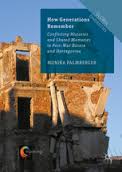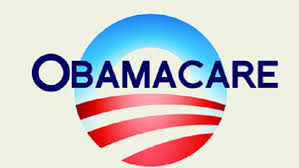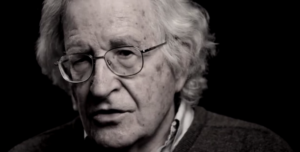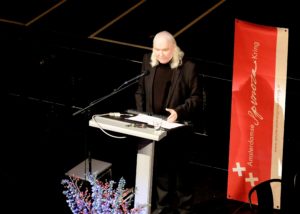The Bureau Of Investigative Journalism
 The Bureau of Investigative Journalism is an independent, not-for-profit media organisation that holds power to account. We tackle big subjects through deep reporting that uncovers the truth. We tell the stories that matter.
The Bureau of Investigative Journalism is an independent, not-for-profit media organisation that holds power to account. We tackle big subjects through deep reporting that uncovers the truth. We tell the stories that matter.
Our mission
We pursue in-depth investigative journalism to inform the public, with no corporate or political agenda. Through fact-based, unbiased reporting, we expose systemic wrongs, counter misinformation and spark change.
Our journalists dig deep, and will spend months getting to the truth if that’s what it takes. Once our investigations are complete, we give them to mainstream media outlets around the world, so they are seen by as many people as possible.
We focus on serious issues affecting our society and identify new areas of investigation through research, data, whistleblowers and contacts. We are always keen to hear from individuals, journalists and organisations interested in collaborating with us.
Our impact
Robust journalism is a crucial part of any democracy. Our stories help citizens better understand their world, give a voice to the voiceless, and hold people and organisations with power to account.
Our reports have prompted official inquiries in the UK, EU and US; influenced changes in British policy on refugees, housebuilding and care homes; and resulted in greater transparency about civilian casualties in America’s covert drone war.
The Bureau’s work has appeared in every major British newspaper and broadcaster and many international news outlets. We have produced more than 50 front-page investigations and prominent television packages, and received more than 25 journalistic awards and nominations.
Support us
Right now, public interest journalism is more vital than ever. Trust and truth are under threat and your support is needed to keep quality reporting alive.
The Bureau relies on donations from pioneering foundations and individuals who know the value of investigative journalism in a fast-changing world.
Help us to continue doing powerful reporting that scrutinises, questions, reveals and informs. Make a donation today.
Go to: https://www.thebureauinvestigates.com/about-us
Noam Chomsky On The Long History Of US Meddling In Foreign Elections
A wide range of politicians and media outlets have described the alleged Russian interference in the last US presidential election (by way of hacking) as representing a direct threat to American democracy and even to national security itself. Of course, the irony behind these concerns about the interference of foreign nations in the domestic political affairs of the United States is that the US has blatantly interfered in the elections of many other nations, with methods that include not only financial support to preferred parties and the circulation of propaganda but also assassinations and overthrows of even democratically elected regimes. Indeed, the US has a long criminal history of meddling into the political affairs of other nations — a history that spans at least a century and, since the end of World War II, extends into all regions of the globe, including western parliamentary polities. This interview with Noam Chomsky reminds us that the United States is no stranger to election interference; in fact, it is an expert in this arena.
C. J. Polychroniou: Noam, the US intelligence agencies have accused Russia of interference in the US presidential election in order to boost Trump’s chances, and some leading Democrats have actually gone on record saying that the Kremlin’s canny operatives changed the election outcome. What’s your reaction to all this talk in Washington and among media pundits about Russian cyber and propaganda efforts to influence the outcome of the presidential election in Donald Trump’s favor?
Noam Chomsky: Much of the world must be astonished — if they are not collapsing in laughter — while watching the performances in high places and in media concerning Russian efforts to influence an American election, a familiar US government specialty as far back as we choose to trace the practice. There is, however, merit in the claim that this case is different in character: By US standards, the Russian efforts are so meager as to barely elicit notice.
Let’s talk about the long history of US meddling in foreign political affairs, which has always been morally and politically justified as the spread of American style-democracy throughout the world.
The history of US foreign policy, especially after World War II, is pretty much defined by the subversion and overthrow of foreign regimes, including parliamentary regimes, and the resort to violence to destroy popular organizations that might offer the majority of the population an opportunity to enter the political arena.
Following the Second World War, the United States was committed to restoring the traditional conservative order. To achieve this aim, it was necessary to destroy the anti-fascist resistance, often in favor of Nazi and fascist collaborators, to weaken unions and other popular organizations, and to block the threat of radical democracy and social reform, which were live options under the conditions of the time. These policies were pursued worldwide: in Asia, including South Korea, the Philippines, Thailand, Indochina and crucially, Japan; in Europe, including Greece, Italy, France and crucially, Germany; in Latin America, including what the CIA took to be the most severe threats at the time, “radical nationalism” in Guatemala and Bolivia.
Sometimes the task required considerable brutality. In South Korea, about 100,000 people were killed in the late 1940s by security forces installed and directed by the United States. This was before the Korean war, which Jon Halliday and Bruce Cumings describe as “in essence” a phase — marked by massive outside intervention — in “a civil war fought between two domestic forces: a revolutionary nationalist movement, which had its roots in tough anti-colonial struggle, and a conservative movement tied to the status quo, especially to an unequal land system,” restored to power under the US occupation. In Greece in the same years, hundreds of thousands were killed, tortured, imprisoned or expelled in the course of a counterinsurgency operation, organized and directed by the United States, which restored traditional elites to power, including Nazi collaborators, and suppressed the peasant- and worker-based communist-led forces that had fought the Nazis. In the industrial societies, the same essential goals were realized, but by less violent means.
Read more
The Ecotopia 2121 Project
The Ecotopia 2121 Project sets out to represent 100 cities throughout the world as they would appear in the year 2121 — if they’ve managed to survive and become super eco-friendly.
Over three years of research, fieldwork, seminars, travel, discussion, theorizing, writing, and drawing — a compendium of 100 illustrated stories was assembled together about how 100 cities from around the world can transform into Green Utopias by the year 2121AD. The 100 selected cities include famous places like London, New York and Paris but also some faraway places you’ve probably never heard of. Also included are mysterious cities like El Dorado, Timbuktoo, Xanadu and Shangri La — which may sound like fantasy and fiction but, actually, they’re all real cities.
Go to: http://www.ecotopia2121.com/
Spinoza ~ The Philosopher Of Counter-Radicalization
Spinoza Lecture 2016 – Amsterdam, November 27
Part 1 ~ Personal meaning
It’s an honour to address the Spinozakring in Amsterdam on Spinozadag. As a young man, I was living in Belfast during the darkest years of the terrorist Troubles, when I set out for Trinity College, in Dublin to begin 5 years of post-graduate research on the subject: “Spinoza’s Ethics and the Meaning of Life.”
What followed was an unequal struggle – Spinoza was even more challenging than I thought – and I didn’t find the meaning of life. In the process, I struggled, mentally. No one I met seemed the slightest bit interested in Spinoza and the more I read and understood The Ethics, the more isolated, anxious and remote from everyday life I became – as if I was going in one direction and everyone else was headed in another.
And during those difficult years, I learned new ways of thinking and Being – perspectives and insights on life and the human condition. Things that have stayed with me to this day; that made me who I am; and that will – I hope – play an important part in my future. After much difficulty, I learned to see and understand the world the way Spinoza saw it.
Spinoza became my anchor – my reference – for exploring life — a beacon of intellectual strength and independence. ‘The Philosopher of Amsterdam” – became my cultural hero in Belfast – not only for his philosophy, but for his character. And just as he was an outsider in his community, so was I.
I learned that the concept of Unity – of living with an attitude towards One-ness, cohesion, and cooperation — was central to Spinoza’s thinking and that his greatest work, The Ethics, described a path to a radical form of mental health through three mutually reinforcing forms of unity, designed to cure three kinds of division.
The first step is to heal and unite the divided self, to overcome conflicted and self-harming emotions, using his psychology; the second, is to unite us with others in strong bonds of friendship, guided by his radical humanism; the third, a cure for ontological alienation in moments of insight when our drop-consciousness joins in an oceanic experience with the eternal.
These three perspectives on human existence – the psychological, the pragmatic and the metaphysical – define why Spinoza’s thinking is so powerful.
Part 2 ~ The two truths
And this brings us to the tension at the centre of his Ethics – and indeed, the terrible contradiction at the heart of the human condition – one that generates so much religious superstition and metaphysical speculation. I’ll try and put this as clearly as possible.
The first self-evident truth of the human condition is the subjective truth of Being, how we feel as we look outwards onto the world. We’ve already beaten astronomical odds to arrive as self-conscious beings and sense the significance of our moment. The truth of our individual identity – that we are separate and distinct from everything else – places us at the centre of our universe. We instinctively prioritize our needs and drives, those we love and care for, and the projects we value. Above all, we want our chance at life to continue.
The second self-evident truth – and it is just as mysterious — is that none of this matters. From the perspective of timeless eternity, whether we live or die, whether our projects succeed or fail, what we want for ourselves and others, means nothing. Everything we value – including our lives – will be taken from us, often brutally, no matter how hard we fight, how much we care, or how good or valuable we are to Mankind. If you want to believe our lives and hopes matter in some objective way, chose a religion, but don’t read Spinoza to find the answer.
These two truths represent life and death, or more accurately, time and eternity. They’re at war with each other and define the drama of the human condition. Their conflict inspires great art, writing, theatre and music — acts of courage, love and self-sacrifice. But it also drives the dark side – depression, meaninglessness, war, suicide …. and violent extremism. The conflict is resolved in death, in that the second truth always wins – and we, as individuals – must surrender. But, it’s our defiance, our stubborn striving to hold our identity in the face of inevitable loss that makes the human condition feel like a restless, if not urgent, roller-coaster ride.
Like many great thinkers, Spinoza tries to reconcile these two truths… and he does it beautifully. He teaches us how both perspectives, both truths can be held and experienced simultaneously. He shows us a way to bring them together as a lived experience – purely for the love, strength and peace of mind — it brings us. This is his magic.
His Ethics has gifted us a strange, extraordinary, philosophy; – of this world, and yet not of this world – that makes it one of the truly great philosophical masterpieces.
Read more
Monika Palmberger ~ How Generations Remember. Conflicting Histories And Shared Memories In Post-War Bosnia And Herzegovina
 From: Introduction: Researching Memory and Generation
From: Introduction: Researching Memory and Generation
[…] The title of this book, How Generations Remember, is an allusion to the title of Paul Connerton’s seminal book, How Societies Remember (1989). In his book, Connerton opens up a timely discussion going beyond the textual and discursive understanding of remembering by concentrating on embodied/habitual memory and ritual aspects of memory. In terms of the study of generations he thus mainly discusses generations as transmitters or receivers of group memory. Although Connerton’s pioneering contribution to the study of memory is unquestioned, by focusing on how memory is passed down through the generations he primarily answers the question of how group memory is conveyed and sustained. This emphasis on transmission and persistence leaves open the question of where to locate the individual, the agent, the force and possibility for reflexivity and change (Argenti and Schramm 2010; Shaw 2010). My study, in concentrating on the role of generational positioning, reveals that past experiences inform present stances, but also shows that it is the actor in the present that gives meaning to the past. This is also true for narratives of the past that are passed on from older to younger generations, and are then scrutinised and contextualised by the latter. It is suggested that people’s sense of continuity can deal with the inconsistencies that arise with this transfer between generations. It is this field of tension between collective and personal, and between persistence and change that is central in the discussion of generational positioning in this book.
Dowload book: http://link.springer.com/book/
Noam Chomsky: The US Health System Is An “International Scandal” ~ And ACA Repeal Will Make It Worse
 Changes are coming to America’s health care system. Not long from now, the Affordable Care Act could be history. President-elect Donald Trump wants to repeal so-called Obamacare, although he is now urging Republicans to repeal and replace it at the same time. But replace it with what?
Changes are coming to America’s health care system. Not long from now, the Affordable Care Act could be history. President-elect Donald Trump wants to repeal so-called Obamacare, although he is now urging Republicans to repeal and replace it at the same time. But replace it with what?
The political culture of the most powerful nation in the world is such that it vehemently defends the right of people to buy guns but opposes the right to free and decent health care for all its citizens. In all likelihood, the Trump health care plan will be one based on “free market principles.” Under such a plan, as Noam Chomsky notes in the interview for Truthout that follows, poor people are likely to suffer most. In other words, the scandalous nature of the US health care system is bound to become even more scandalous in the Trump era. Welcome back to the future.
C.J. Polychroniou: Trump and the Republicans are bent on doing away with Obamacare. Doesn’t the 2010 Patient Protection and Affordable Care Act (ACA) represent an improvement over what existed before? And, what would the Republicans replace it with?
Noam Chomsky: I perhaps should say, to begin, that I have always felt a little uncomfortable about the term “Obamacare.” Did anyone call Medicare “Johnsoncare?” Maybe wrongly, but it has seemed to me to have a tinge of Republican-style vulgar disparagement, maybe even of racism. But put that aside…. Yes, the ACA is a definite improvement over what came before — which is not a great compliment. The US health care system has long been an international scandal, with about twice the per capita expenses of other wealthy (OECD) countries and relatively poor outcomes. The ACA did, however, bring improvements, including insurance for tens of millions of people who lacked it, banning of refusal of insurance for people with prior disabilities, and other gains — and also, it appears to have led to a reduction in the increase of health care costs, though that is hard to determine precisely.
The House of Representatives, dominated by Republicans (with a minority of voters), has voted over 50 times in the past six years to repeal or weaken Obamacare, but they have yet to come up with anything like a coherent alternative. That is not too surprising. Since Obama’s election, the Republicans have been pretty much the party of NO. Chances are that they will now adopt a cynical [Paul] Ryan-style evasion, repeal and delay, to pretend to be honoring their fervent pledges while avoiding at least for a time the consequences of a possible major collapse of the health system and ballooning costs. It’s far from certain. It’s conceivable that they might patch together some kind of plan, or that the ultra-right and quite passionate “Freedom Caucus” may insist on instant repeal without a plan, damn the consequence for the budget, or, of course, for people.
One part of the health system that is likely to suffer is Medicaid, probably through block grants to states, which gives the Republican-run states opportunities to gut it. Medicaid only helps poor people who “don’t matter” and don’t vote Republican anyway. So [according to Republican logic], why should the rich pay taxes to maintain it?
Article 25 of the UN Universal Declaration on Human Rights (UDHR) states that the right to health care is indeed a human right. Yet, it is estimated that close to 30 million Americans remain uninsured even with the ACA in place. What are some of the key cultural, economic and political factors that make the US an outlier in the provision of free health care?
First, it is important to remember that the US does not accept the Universal Declaration of Human Rights — though in fact the UDHR was largely the initiative of Eleanor Roosevelt, who chaired the commission that drafted its articles, with quite broad international participation.
The UDHR has three components, which are of equal status: civil-political, socioeconomic and cultural rights. The US formally accepts the first of the three, though it has often violated its provisions. The US pretty much disregards the third. And to the point here, the US has officially and strongly condemned the second component, socioeconomic rights, including Article 25.
Read more
- Page 2 of 3
- previous page
- 1
- 2
- 3
- next page




